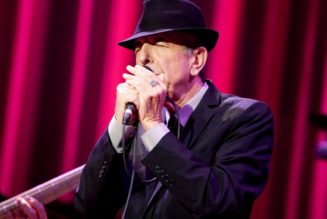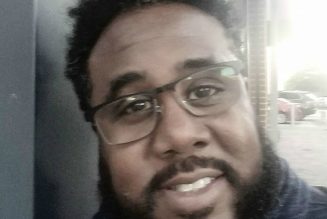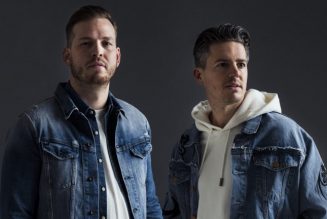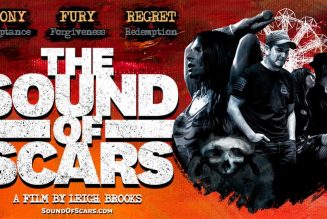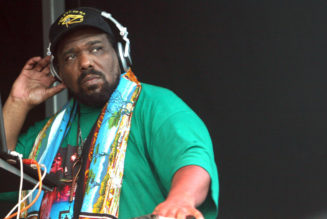
In 1998, Ibiza was becoming one of the world’s freshest and most exciting destinations for dance music. The music was new, the nights were long and the tan lines were deep.
Tom Holkenborg was there, performing sets under his DJ name Junkie XL. In the decades that have followed, Holkenborg’s career has evolved from producing tracks to scoring, with his work soundtracking dozens of movies and television shows including Mad Max: Fury Road, Deadpool, The Dark Tower, Terminator: Dark Fate and the recently released Scooby Doo flick, Scoob!
But arguably, none of these projects have fused Holkenborg’s history as a DJ with this current profession as well as his recent project White Lines. Premiering on Netflix May 15, the series tells the story of a woman who travels to Ibiza to investigate the murder of her brother, a DJ on the island in the late ’90s. The show is flashy, fun and — for people who’ve partaken in the hedonism Ibiza has to offer — happily nostalgic.
To make the score more authentic, Holkenborg used only equipment available in the ’90s to make the music, much of which he played himself. In addition to Holkenborg’s score, White Lines features loads of familiar music by Radiohead, Happy Mondays, Joey Beltram, Frankie Knuckles and more. (Hear a playlist featuring some of these tracks below.)
“It was important for us to make any flashback scenes to the ’90s as authentic as possible, in particular any party scenes,” says Simon Astall, music supervisor at Earworm, which has also licensed music for shows including the second season of Big Little Lies. “Licensing dance music from that era is notoriously tricky, especially when looking at the more underground tracks where it involves tracking down writers and artists that have not been active for many years. Our great connections in this world meant that we were able to secure tracks that you might not normally hear in a TV series of this kind.”
And when the show’s producers asked Earworm who should compose the score, Holkenborg was their first choice.
“Authentically and creatively, he was the only option,” says Earworm’s Ben Turner. “I remember being in Ibiza in the mid ’90s listening to his anthems in Amnesia. And in 2020, here he is in Hollywood composing scores for the biggest films on the planet. Watching him reconnect with his past in line with the plot of this series, and adding his stunning score, perfectly encapsulated the music past and present in a sonically spiritual way.”
Here, Holkenborg discusses making music for White Lines and how the show has fused the two eras of his career.
It must’ve been a unique pleasure to dive into both popular music history and your own musical history for this show. What was most special about the musical era you recreate in White Lines?
What was very unique about 1998 was that alternative music, rock music, dance, music, it all just came together so naturally. You would go to festivals and you would see, for instance, Oasis play live, but also The Chemical Brothers. I would play live and then Radiohead would play live. It was, like, very normal for that audience to process these different music styles. We moved away from that a bit in 2020, but in ’98, it seemed like this magical time period where all these things came together.
What made it very interesting for me to work on the show is that I have experienced all these different music styles, and I was also an upcoming artist in that same time period. Knowing that, and also knowing the island really well being there so many times and doing gigs there, made it very interesting to work on the show.
What are some of your strongest memories of the first times you went to Ibiza?
I actually went to the island multiple times before it became this dance epiphany and everybody had to go there. I went there a lot and learned a lot of about the island. I had a friend there who was way older than I am. He’s in his 80s right now, and he was this jazz musician that I worked with a lot in the late ’80s and early ’90s.
What was really interesting is during the Franco time period, where technically Spain was still a dictatorship, a lot of people were expelled from Spain and sent to Ibiza — writers, philosophers, artists and gay people, for instance. It created this incredible cultural mix on the island of people who were bright thinkers and really trying to push the boundaries of what society could be. When dance music really became popular, they were one of the first to fully adopt that.
So I saw this whole thing happening while I was there as a guest working with this jazz musician before dance music was even a big thing on the island. Later, when I got a career myself in dance music, I went back to the island to do actually do shows.
What was it like working on equipment that you actually used during the ’90s?
To to be able to compile a rack of equipment made up of the exact duplicates of what I used in ’97 and ’98 was just incredible. You make music with it, and then you think like, “Oh, wait, let me do this and this, so it sounds better.”
I had to tap myself on the hand saying, “No, Tom, you can’t do that, because back in the day you didn’t have these tools either, and you left it at that.” I had to force myself not to take it further to keep it really legit.
Your score is placed alongside music from famous bands such as Radiohead. Making music to live alongside really well known tracks must’ve been exciting.
We were really happy that we got all of the licensed tracks, and what was very important on that end is that the score would amplify them. This score is not just electronic dance music. There’s certain score cues that sound like Oasis. There’s some score cues that sounded like Radiohead. There’s certain score cues that are proper Cafe Del Mar, which was an area of the island where there was actually a beach club called Cafe Del Mar and they released their own compilations with usually downtempo music. All that, including the club music culture and everything that was happening to the alternative world, needed to be part of the score.
Is it fair to say that White Lines was a particularly exciting project for you, in the way it fuses your two worlds of DJing and scoring?
It’s very fair to say.




